Contents
Every year, millions of people celebrate their birthdays, but have you ever stopped to consider the peculiar phenomenon known as the “birthday effect”?
This intriguing concept suggests that a person’s risk of dying may be heightened on their special day.
We will explore the odds of dying on your birthday, the underlying causes behind this unsettling trend, and the statistics that shed light on this phenomenon.
Additionally, we will debunk common myths and share practical tips to help you celebrate safely.
What are the odds of dying on your birthday?
The odds of dying on your birthday have intrigued many, as statistical studies reveal that individuals may indeed have a higher chance of dying on their birthday than on other days of the year.
This phenomenon, often referred to as the ‘birthday effect, highlights the curious relationship between life events and mortality.
Common sense suggests that around 1 in 365 people die on their birthday, but there are additional questions about the underlying causes and significance of this occurrence.
Understanding the odds can provide insight into human psychology and mortality patterns, prompting further exploration into why people might be more likely to die on their special day.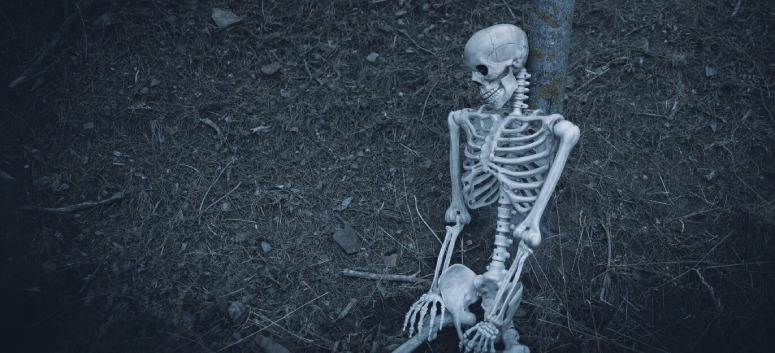
What is the birthday effect?
The birthday effect is a phenomenon that describes the increased likelihood of individuals dying on their birthday compared to other days of the year, raising intriguing questions about life and death.
Research suggests that this effect is not merely anecdotal – statistical analyses have shown a measurable increase in mortality rates on birthdays, particularly among certain demographics.
Understanding the birthday effect involves diving into psychological, social, and biological factors that may contribute to this curious correlation.
Studies indicate that the birthday effect raises the question of whether people are more likely to die on their birthday due to heightened emotional stress, the expectations surrounding celebrations, or even the psychological weight of aging.
For instance, it’s been observed that individuals might experience heightened anxiety on their birthdays, which could exacerbate existing health conditions.
The social aspect of birthdays, often involving gatherings and celebrations, may lead to behaviors such as excessive drinking or neglecting health, thereby amplifying risks.
- Statistical evidence supports that certain age groups, particularly the elderly or those with pre-existing conditions, show a notable spike in mortality rates on such significant dates;
- Potential explanations might also touch upon the concept of psychosomatic responses, where the mind influences physical health.
This leads to a broader inquiry — what does it mean if you die on your birthday? Some might view this as a cruel twist of fate or a mystical occurrence, prompting further explorations into the symbolic significance of life events intertwined with the finality of death.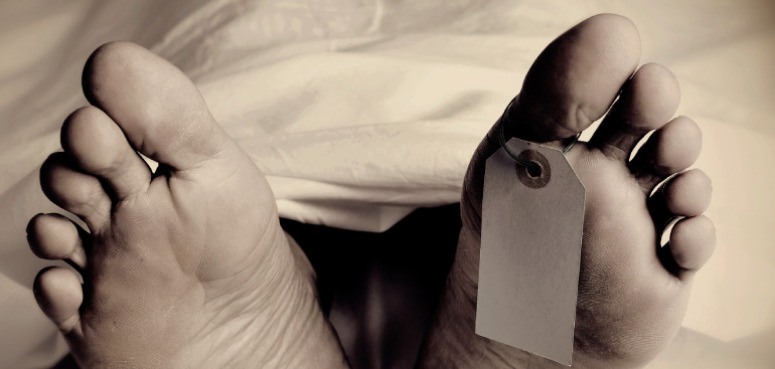
What are the causes of the birthday effect?
The causes of the birthday effect are multifaceted, involving a complex interplay of psychological, biological, and social factors that may lead to increased mortality rates on an individual’s birthday.
Researchers have proposed several explanations for why people might be more likely to die on their birthday, including natural causes related to aging, increased risk of accidents, and even a potential rise in suicide rates.
For many, a birthday serves as a poignant reminder of their mortality, which may contribute to emotional stress and health issues. Exploring these causes can shed light on this intriguing phenomenon.
Natural causes
Natural causes of death, such as heart disease or age-related conditions, may contribute significantly to the birthday effect, as individuals often reach their birthdays in a potentially weakened state of health.
Studies have shown that the accumulation of various health issues can exacerbate underlying medical conditions, leading to an increase in mortality rates on special days such as birthdays.
As people age, numerous health statistics point to a rise in occurrences of chronic illnesses, including heart disease, diabetes, and certain cancers. For instance, according to national health data, the incidence of serious medical events tends to spike in older populations.
This connection raises curious questions about how common is it to die on your birthday, with some studies revealing heightened mortality rates associated with significant dates.
- Psychological factors also play a crucial role – emotional stress can impact physical health as celebrations may remind individuals of life’s fragility;
- It is crucial to examine why do people die around their birthday, since the seasonal fluctuations in health can influence mortality during specific months.
The interplay between emotional and physical health on birthdays is a complex web, seemingly resulting in an unfortunate convergence of celebratory times and heightened vulnerability.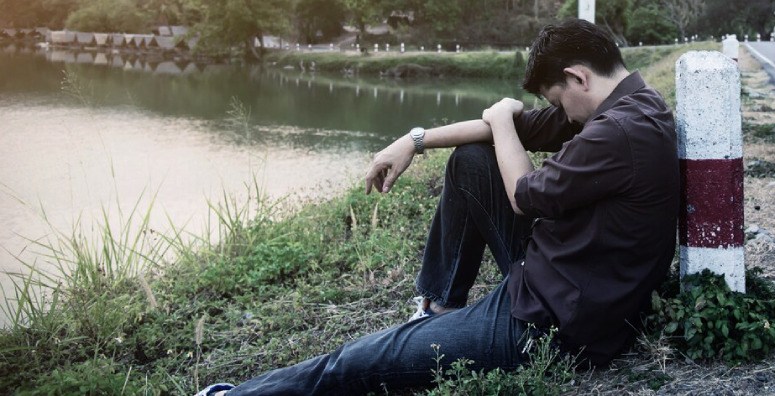
Accidents
Accidents are another significant cause that may contribute to the increased risk of dying on one’s birthday, particularly due to the celebratory nature of the occasion.
Many individuals engage in festivities that can involve alcohol consumption, travel, or other high-risk activities, leading to a higher likelihood of accidents.
Research shows that certain age groups, especially young adults, may be especially vulnerable to fatal accidents during birthday celebrations.
In fact, studies suggest that people are more likely to die on birthday celebrations than on any other day of the year. This unsettling statistic can be attributed to various risk factors associated with these occasions.
- Alcohol Consumption – It is common for festivities to include drinks, which can impair judgment and increase the risk of dangerous behavior;
- Travel Hazards – Many individuals travel for celebrations, potentially leading to accidents;
- High-Risk Activities – Engaging in risky behaviors, such as extreme sports or late-night outings, during these celebrations amplifies the chance of harm.
The prevalence of celebratory events during this time further elevates the chances of dying on your birthday due to the combination of these factors.
Suicides
Suicides represent a critical aspect of the birthday effect, as emotional distress surrounding personal milestones can lead to tragic outcomes.
Research indicates that individuals may experience heightened feelings of isolation or despair during their birthdays, resulting in increased suicide rates during this time.
This phenomenon raises profound questions about the psychological ramifications of personal celebrations, particularly for those facing mental health challenges.
It’s particularly alarming to consider why do people die near their birthday, as it emphasizes a complex connection between life events and emotional well-being.
Statistics reveal that a notable percentage of suicide victims report a significant emotional downturn as their special day approaches, prompting a need for deeper understanding.
- For many, birthdays can trigger memories of loss or trauma;
- Feelings of unmet expectations can amplify feelings of hopelessness;
- Social isolation often peaks during personal milestones, exacerbating existing mental health issues.
By exploring these aspects, society can better grasp what does it mean when you die on your birthday,linking this with necessary support systems to help individuals navigate their emotions during such significant times.
What are the statistics of dying on your birthday?
Statistics reveal intriguing insights into the risk of dying on one’s birthday, highlighting variations across age groups, genders, and other demographics.
Research indicates that approximately 1 out of every 365 individuals may pass away on their birthday, though this percentage can fluctuate based on factors such as age, health status, and lifestyle choices.
Understanding these statistics can help to contextualize the birthday effect and its implications for health and mortality.
Overall risk of dying on your birthday
The overall risk of dying on your birthday is a notable statistic, suggesting various implications for understanding mortality. Research shows that people are statistically more likely to die on their birthday than on any other day of the year, with estimates indicating that around 1-2% of deaths occur on this day.
This risk varies across different populations and can be influenced by factors such as health status and lifestyle.
This phenomenon raises intriguing questions about the odds of dying on your birthday and its correlation with various external influences.
According to a study published in the Journal of Epidemiology, the likelihood that individuals will not only celebrate their special day but also significantly face mortality varies depending on age and other demographic factors.
For example, older adults may experience this risk more acutely than younger individuals.
- The data further suggests that environmental factors, such as stress levels and emotional well-being, could also play a role in this unique statistic;
- Notably, the research emphasizes that while the risk is present, the absolute numbers remain small compared to overall mortality rates.
Understanding the reasons behind these statistics can provide insight into not only individual health but broader public health trends.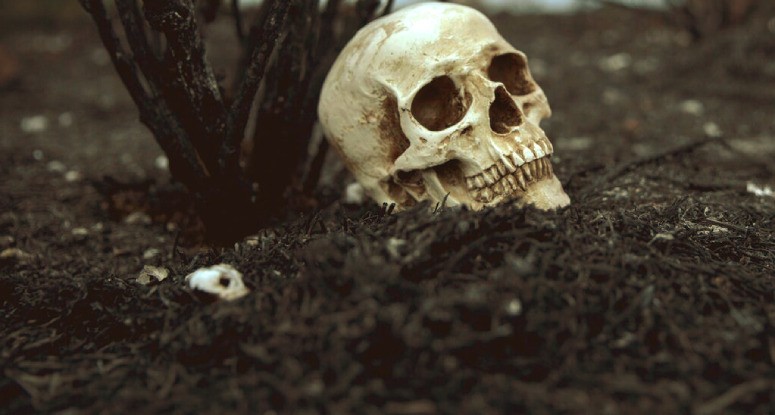
Risk of dying on your birthday by age
The risk of dying on your birthday varies significantly by age, with certain age groups exhibiting a higher probability of experiencing this phenomenon. To understand the risks, it’s useful to consider what are the odds of dying on your birthday at different stages of life.
Research indicates that younger individuals, particularly those in their late teens to early 30s, may face heightened risk factors associated with birthday-related accidents or emotional distress.
Conversely, older adults may be more susceptible to natural causes of death, contributing to the overall trend of increased mortality on birthdays.
This intriguing pattern raises questions about the underlying reasons behind the increased mortality rates on such a celebratory day. Studies show that:
- The incidence of fatal accidents peaks among younger adults, particularly during festive celebrations;
- For older adults, health complications often culminate around these significant dates.
A notable statistic reveals that, on average, how many people died on their birthday can be distressingly high, with some studies suggesting that approximately 0.01% of people die on their special day.
As the analysis unfolds, it becomes crucial to understand the dichotomy in mortality causes across various age groups, emphasizing the need for enhanced awareness and preventive measures surrounding birthdays.
Risk of dying on your birthday by gender
Research suggests that the risk of dying on your birthday can also differ by gender, with some studies indicating that men may face a higher likelihood of birthday-related deaths compared to women. To grasp these differences fully, it’s essential to explore what are the odds of dying on your birthday based on gender.
Factors contributing to this disparity may include lifestyle choices, risk-taking behaviors, and differing emotional responses to birthdays. Understanding these gender-based differences can provide valuable insight into the complexities surrounding the birthday effect and its implications for public health.
Various studies have attempted to quantify how rare it is to die on your birthday, revealing intriguing statistics about this phenomenon. For instance, one significant observation highlights that indeed, a small percentage of people—approximately 0.3%—pass away on their special day.
Research has found that while this percentage is relatively low, it appears to climb to about 2% for men in certain age groups.
- This discrepancy might stem from various factors, such as increased stress levels associated with birthday celebrations or a tendency among men to engage in more hazardous activities during these times;
- It’s suggested that the emotional weight of turning a year older may be perceived differently between genders, potentially influencing overall mortality rates on such notable occasions.
Given these findings, exploring what percentage of people die on their birthday can help unravel the complex interplay between gender and the risks associated with such celebrations.
What are the common myths about dying on your birthday?
Common myths about dying on your birthday often revolve around misconceptions and cultural beliefs that shape our understanding of mortality. Many people hold the belief that dying on one’s birthday is exceptionally rare or carries specific supernatural meanings.
These myths can influence how individuals perceive their birthdays, causing anxiety or fear related to mortality. Debunking these myths is essential to foster a more accurate understanding of the risks associated with dying on one’s birthday.
The 27 club
The 27 Club is a cultural phenomenon referring to the deaths of numerous artists and musicians at the age of 27, leading many to speculate about the significance of this age. While not directly related to birthdays, this myth often intertwines with discussions about dying on significant dates, including birthdays. Many believe there is a curse or fate surrounding those who reach this age, adding a layer of intrigue to our understanding of mortality.
This concept first emerged in the late 20th century, largely popularized by the untimely deaths of iconic figures such as Jimi Hendrix, Janis Joplin, Kurt Cobain, Jim Morrison and Brian Jones.
- Such incidents sparked a curiosity about age-related mortality, prompting questions like, is it rare to die on your birthday?
- Some researchers have even examined the psychological impact of turning 27, suggesting it might represent a critical transition into adulthood for many.
Given this backdrop, the 27 Club serves as a poignant reminder of fleeting youth, raising ongoing discussions about the relationship between fame, talent, and the almost mythic symbolism of certain ages within our culture.
The birthday paradox
The birthday paradox refers to a famous probability theory that suggests in a group of just 23 people, there is a surprisingly high chance that two individuals share the same birthday.
While this concept is related to birthdays, it can sometimes lead to confusion when discussing the odds of dying on one’s birthday. Clarifying the distinction between the birthday paradox and the birthday effect is essential for accurate understanding.
Essentially, the birthday paradox reveals how our intuitions about probability can be misleading. When considering a gathering of just 23 individuals, it’s intriguing to discover that the likelihood of any two people sharing the same date of birth reaches an astonishing 50%.
This statistical phenomenon prompts questions regarding mortality as well – for instance, many may wonder what are the chances of dying on your birthday.
Statistically, it could be argued that the probability of dying on one’s birthday does not significantly differ from any other day.
It is crucial to note that this probability can be affected by numerous factors, such as age and health. Therefore, when contemplating what are the odds of dying on your birthday, it’s vital to consider individual circumstances.
- Understanding this paradox can help clarify why people overestimate the probability of certain events;
- The implications of the birthday effect highlight the importance of statistical literacy in interpreting such probabilities;
- Ultimately, both the birthday paradox and the inquiry into death on a specific day serve to illustrate the complexities of human perception regarding chance and fate.

The birthday blues
The birthday blues refer to feelings of sadness or anxiety that some individuals experience around their birthday, which can contribute to the narrative surrounding dying on this day.
These emotional struggles often stem from reflections on aging, unmet goals, or feelings of loneliness. Understanding the psychological aspects of the birthday blues can also shed light on the increased risk of death on birthdays, including suicides and health crises.
As individuals approach their special day, they may find themselves grappling with the inevitable passage of time and what it signifies for their lives.
This phenomenon can lead to a deeper emotional reflection, prompting questions such as why do people die around their birthday? and challenging cultural stigmas surrounding this sensitive topic.
Research suggests that many individuals who experience the birthday blues often deal with:
- Pressures of societal expectations;
- Feelings of inadequacy related to personal milestones;
- Or heightened awareness of their own mortality.
These factors ultimately exacerbate emotional health, making it crucial for society to engage in open conversations about dying on birthday meaning and how to support those feeling down during this time.
Developing coping strategies and fostering connections can help mitigate these feelings, encouraging a more positive outlook towards aging and personal growth.
How can you lower the risk of dying on your birthday?
Lowering the risk of dying on your birthday is achievable through mindful decisions regarding health and safety, as well as an emphasis on mental health awareness.
Engaging in healthy lifestyle choices, such as regular exercise and balanced nutrition, can enhance overall well-being and mitigate risk factors associated with birthday deaths.
Additionally, implementing safety precautions during celebrations and encouraging open conversations about mental health can further support individuals in navigating their special day with care.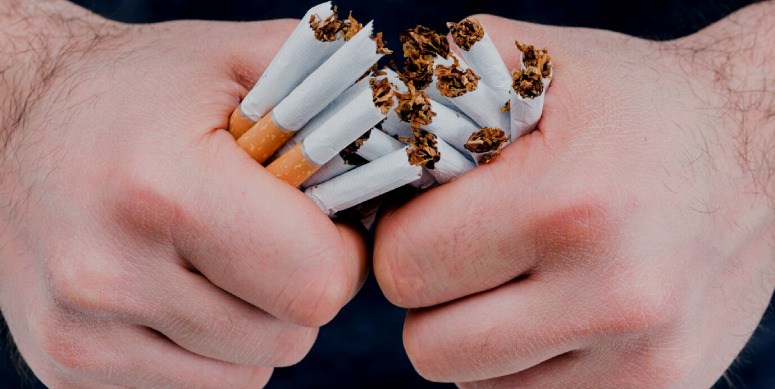
Healthy lifestyle choices
Adopting healthy lifestyle choices is vital for lowering the risk of dying on your birthday, as well as promoting longevity and overall well-being.
Incorporating regular physical activity into your daily routine, along with a balanced diet rich in nutrients, can significantly improve one’s health outcomes.
- Engaging in cardiovascular exercises, such as brisk walking or cycling, can enhance heart health;
- Incorporating strength training at least twice a week might assist in maintaining muscle mass;
- A diet abundant in fruits, vegetables, whole grains, and lean proteins not only fuels the body but also reduces the likelihood of chronic illnesses.
Practicing wellness techniques like meditation, proper sleep hygiene, and stress management can foster a healthier mind and body, mitigating the risk of feeling unwell on significant occasions.
Ultimately, celebrating birthdays shouldn’t compromise health – instead, it can be an opportunity to reaffirm commitments to healthy living, allowing individuals to thrive each year rather than become more likely to die on birthday.
Safety precautions
Implementing safety precautions during birthday celebrations can significantly reduce the risk of accidents and potential fatalities. Simple measures, such as designating a sober driver, avoiding excessive alcohol consumption, and ensuring a safe environment for gatherings, can help mitigate dangers associated with festivities. Awareness of risk factors during celebrations is key to ensuring a joyful and safe birthday experience.
It’s vital to consider other safety elements that might come into play. For example, properly managing food allergies is crucial, especially when serving treats that could trigger adverse reactions. Planning for safe activities can also prevent injuries associated with games or physical challenges.
- Ensure that all decorations are flame-retardant to prevent any fire hazards;
- Keep first aid kits accessible, especially if you have children or pets attending;
- Consider the weather conditions if the celebration is outdoors, to avoid any accidents related to environmental hazards.
It’s important to remember that while birthdays are meant for celebration, becoming aware of how tragic events, such as dying on birthday or occurrences that could turn a birthday into a birthday and death day, can help prioritize safety for all invitees.
Mental health awareness
Promoting mental health awareness is crucial for individuals who may experience emotional challenges during their birthdays, including feelings of sadness or anxiety.
During this time of celebration, it’s often easy to overlook the profound emotional weight that a birthday can carry for some. As friends and family, understanding the significance of this day can allow for a more supportive environment.
While others may bask in joy and festivities, the emotional dichotomy can lead to difficult questions, such as what does it mean if you die on your birthday?
The seemingly high frequency of tragedies occurring near one’s birthday sparks curiosity about why do people die near their birthday? To address these sentiments, it’s important to:
- Encourage open discussions about feelings;
- Provide unconditional support and presence;
- Recognize and validate emotions without judgment.
By embracing these practices, individuals can foster a deeper understanding of their emotional landscape, ultimately leading to better mental health awareness on significant days like birthdays.
For information on the odds of becoming a professional soccer player, check out our FAQ section a little lower on this page.
Immerse yourself in the intriguing world of probabilities and rare occurrences. To uncover more compelling information, check out our additional articles at WhatAreTheOddsOf.NET.



